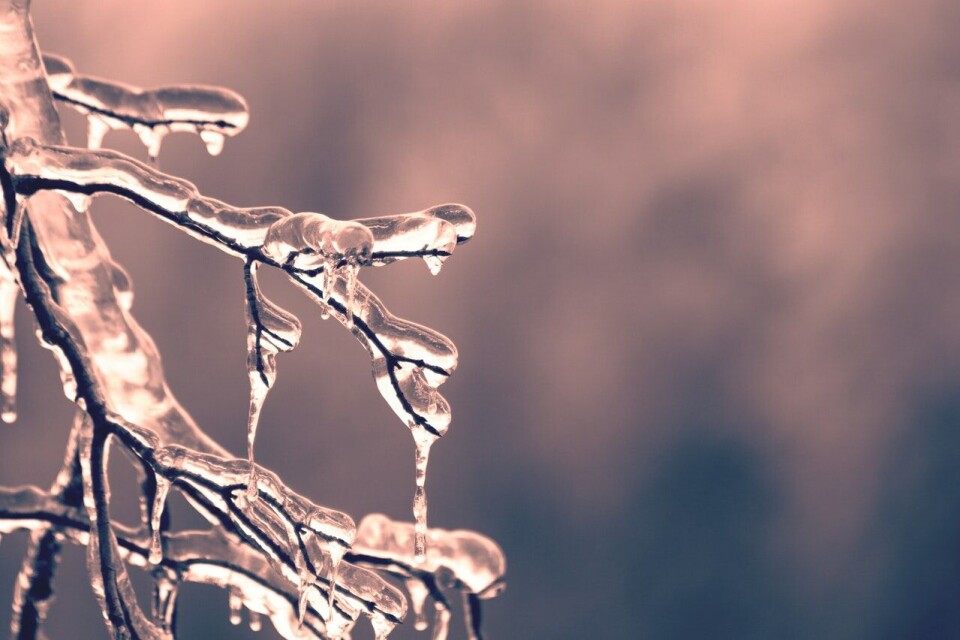-
La Voie Bleue: European Cycle Route of the Year is in France
700km bike path linking Luxembourg and Lyon has been crowned winner of the 2026 title
-
Before and after: Garonne river floods in south-west France
Satellite images show extent of flooding from back-to-back storms in February
-
Home insurance increases expected in France after floods
Compensation costs for the recent storms and flooding across the west and south-west is estimated to be in the billions of euros
Record cold snap in France: How unusual is it and is it over?
Heavy rain and low temperatures predicted for the days ahead

More cold weather is set for France next week after temperatures dropped 7C below normal this week.
Temperatures plunged rapidly in many areas of France on Monday April 5, with Wednesday April 7 one of the coldest April days since 1930.
Even in the south, temperatures dropped below freezing overnight on Tuesday and Wednesday. Low temperature records for April were broken in Gourdon in Lot, at -4.8C; Montauban in Tarn-et-Garonne (-2.1C); and in Nîmes in Gard (-0.7C).
Winemakers and fruit growers have been particularly affected, with freezing nighttime conditions causing damage to vines and fruit trees, which had already begun to flower due to a mild winter and high temperatures in previous weeks.
Read more: France declares ‘calamité agricole’ after record cold: What is it?
What caused the exceptional cold this week?
La Chaîne Météo puts the cold down to these main factors:
- Dry and calm weather allowing depressions to settle
- Very cold air coming from the Arctic
- Clear, cold nights
- Nights that are still relatively long
The weekend ahead: More cold expected
The weather forecast for Saturday April 10 and Sunday April 11 suggests that cold air from the north will continue to affect France.
Heavy rain is expected in the southeast and northwest, with cold temperatures forecast for the northwest. Temperatures are expected to rise slightly in the south and east.
A depression rising from the Azores will cross over France en route to Belgium, causing a clash between this warmer air and colder air from the north, resulting in heavy rain.
Temperatures are also set to drop considerably again on Sunday, with snowfall predicted low in the mountains.
Yet, temperatures may not remain as cold as they have been in previous days, with an average of 6-10C during the day in the north and northeast, and 10-18C in the southeast.
But the northeast may see hail and sleet as temperatures drop considerably again.
Colder temperatures are forecast to return on Tuesday April 13, with Météo France announcing the arrival of new freezing nighttime temperatures and ice, after heavy rain at the weekend.
How unusual is cold weather in April in France?
The recent cold snap is the most severe seen in April in France for the past 30 years, forecasters have said.
It lasted three days at its peak (Monday-Wednesday), but it affected most of the country, and was particularly intense.
In comparison, a very cold snap in 2003 lasted six days, but this was less intense, and less uniform across the country.
But weather commentators say that “unexpectedly cold” weather in April in France is not actually that rare.
Forecaster Regis Crepet, at , said: “The term ‘cold snap’ doesn’t really apply in April because temperatures are mild during the day; and while snowfall may stay on the ground in the morning, it will melt in the lowlands as soon as the sun comes out.
“Nevertheless, some months of April have had notable cold spells in the past.”
He added, however, that France has been warming up in recent decades, making colder weather in April more unusual.
He said: “The trend towards a warmer climate in France, [especially] in spring, has been very clear since the 2000s. For the past 20 years, the months of April have almost all been above the statistical reference averages (1981-2010) in France.”
He also explained why the cold weather was having a more damaging impact on crops and farmers, especially this year.
He said: “Before the year 2000, April was usually cooler, so crop growth progressed slowly. Whereas now, the flowering of fruit trees started a good two weeks ago, and start to be seen from the end of March. This makes them more vulnerable to late frost.
“Cold April months were frequent before the year 2000, as part of long-lasting, cold winters. Since 2000, a new trend has been observed: late cold spells and snow still occur, but they now often come after very mild winters.
“This causes the problem of [damage to] vegetation, which suffers more from these late frosts.”
Related stories
France declares ‘calamité agricole’ after record cold: What is it?
Hot weather records for France but 20C drop and even snow next week
























